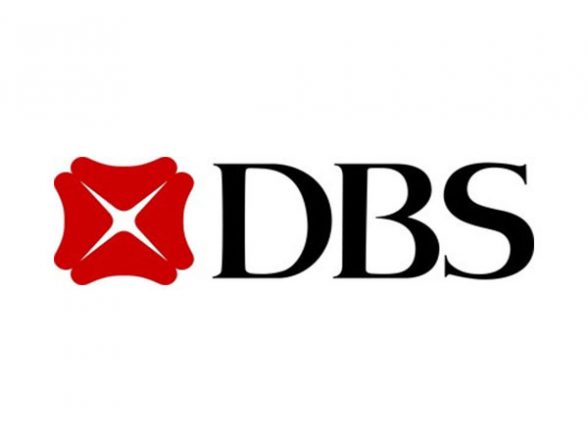[ad_1]
Author: Li Jiahui
SINGAPORE, 27 March (ANI): While 85% of mid-sized firms and 75% of small firms said ESG (environment, social and corporate governance) are top priorities, with only 37 percent having a clear roadmap on how to get there.
Read also | Gregory A Locke: NYC Judge Fired For Part-Time Online Porn Star On OnlyFans.
Published as an e-book, the report entitled “Catalysts for Sustainable Development” is the result of a survey conducted last August among 800 SMEs (small and medium enterprises) in six Asian markets (India, China, Taiwan, Hong Kong, Indonesia and Singapore.
The study involved more than 937 decision makers in industries such as real estate, transportation, electricity, agriculture, and restaurants/hotels. In-depth interviews were also conducted with 11 decision makers from SMEs to further understand the barriers and opportunities for sustainable development.
Small and medium enterprises have an important role to play in addressing climate change. According to the World Bank, SMEs account for 90 percent of businesses and more than half of jobs globally, yet many lack the financing, technology and expertise to grow sustainably.
The report found that overall, business leaders have a positive attitude towards sustainability, with more than eight in 10 agreeing that their companies should operate with an eye towards protecting the environment and that sustainability values should be incorporated in the selection of investment projects.
“Ethics is the most important thing,” the head of a Taiwanese catering company said in the report. “As a business, you basically do the morally right thing.”
On average, Asian companies that view ESG as a high priority allocate 18% of their budget to ESG projects. They expect funding to reach 19.8 per cent over the next three years, with the bulk going to environmental projects.
Decision makers in the study noted that the environment has the greatest impact on their industry, with waste management, climate change and carbon footprint being key areas of focus.
While compliance with regulations, attracting talent, increasing revenue, pleasing stakeholders, and simply doing the right thing are the main drivers for SMEs to embrace ESG, survey respondents said unclear reporting standards and financial concerns are common reasons for ESG adoption obstacle.
More than one-third of SMBs cited challenges in return on investment, deployment costs and meeting growth goals. Unclear ESG criteria present another challenge.
“We are having a hard time finding the right metrics to measure our ESG performance,” said the head of a logistics and supply chain company in India. “Right now, we know how we’re doing based on our energy savings progress compared to last year.”
The report found that most SMEs are serious about ESG and plan to make it an integral part of their business, but many are still in the early stages of their journey. Some 83 percent of small companies and 92 percent of midsize companies have a strategy or are in the process of developing one, but only 37 percent have a clear roadmap to get there.
Most SMBs prioritize initiatives that are likely to improve their bottom line and those that can be acted upon immediately. Currently, they focus more on identifying sustainability issues affecting their business than developing ESG frameworks and long-term strategies that take years to achieve.
“We have a long-term mission, but no strategy,” said the head of a Chinese real estate and construction company. “We just don’t have the resources to survey and plan ESG initiatives for the next decade.”
While long-term planning can be difficult, Yulanda Chung, Head of Sustainability, DBS Institutional Banking, offers practical steps: “SMEs can start by identifying important ESG elements to focus on, and then assess whether these elements can improve their Bottom line.”
“Analyzing industry trends and best practices is another important step to take early on,” Chung added. “SMEs can use this experience to conduct a risk analysis and understand the consequences if they do not comply with industry standards and government guidelines. These exercises can also help them identify opportunities and start planning a course of action. Over time, This is a time-bound, actionable and quantifiable roadmap that they can turn to.”
Reporting requirements can hinder SMEs’ ESG journey. SMEs do not have the same resources to undertake ESG reporting as large corporations. The lack of a homogenous framework or standardized guidelines can also lead to widespread inconsistency in measuring success and performance.
Respondents to the survey also indicated that companies expect comprehensive ESG advice from banks first, followed by financial assistance and thought leadership. Many companies, especially SMEs, are unsure whether their ESG initiatives qualify for green financing.
One company that has benefited from consulting financial institutions on its ESG programs is Gurgaon-based ReNew Power. ReNew is one of India’s largest independent power producers (IPPs), with nearly 1,700 employees and an annual turnover of INR 69.1 billion ($912 million). It produces renewable energy through wind, solar and hydroelectric power.
In response to the intermittent challenges of renewable energy generation, it had sought financing to build the largest single renewable energy project in India’s history. The 1,300 MW all-weather (RTC) battery project includes three wind farms and a solar-plus-battery energy storage farm with 100 MWh of storage capacity across three states. Together they will provide SECI (Solar Energy Corporation of India) with 400 megawatts of electricity.
Initially, ReNew found it difficult to raise debt because the business was unconventional and therefore unable to provide lenders with the high degree of certainty of solvency that some other industries have. However, it ended up securing $1 billion through a consortium of lenders including DBS Bank.
Piyush Gupta, Chief Executive Officer, DBS Bank, said: “When it comes to SMEs, we understand the many challenges they face in transitioning to more sustainable business models. But given that they are the lifeblood of the economy, SMEs must make the transition successfully. ” (Arnie)
(This is an unedited and auto-generated story from a Syndicated News feed, the content body may not have been modified or edited by LatestLY staff)
share now
[ad_2]
Source link



